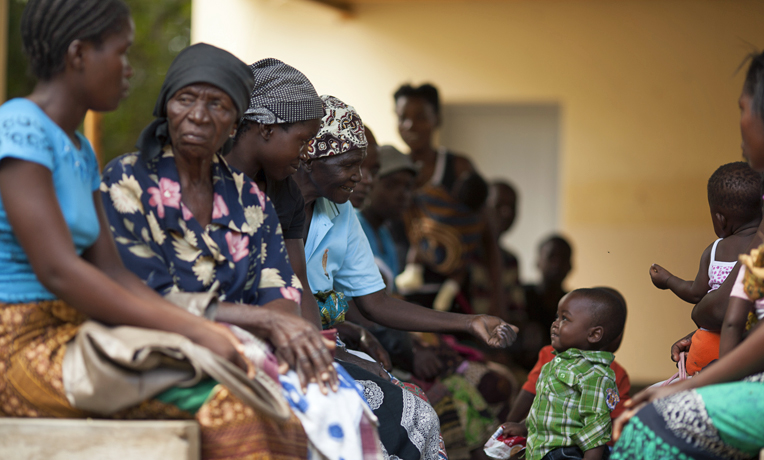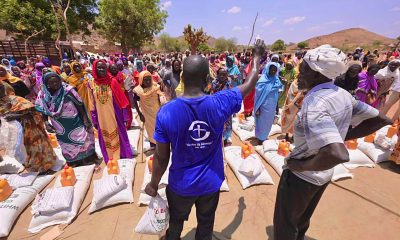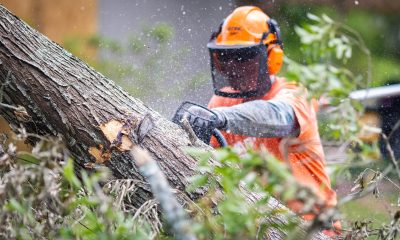An intern reflects on the how his coworkers in Mozambique are sharing the Gospel
Keith Anderson is an intern with Samaritan’s Purse in Mozambique.
“For though we walk in the flesh, we do not war according to the flesh. For the weapons of our warfare are not carnal but mighty in God for pulling down strongholds,” (2 Corinthians 10:3-4, NKJV).
As Americans, we love fantasy. Or perhaps I should say as humans, we love fantasy. Knights in shining armor railing against the evil villain and the great sea captain on a quest for misty shores are stories that line our imaginations like brilliant veins of gold and silver.

The staff in Guija meets every morning to sing and read the Bible.
Even our churches glint with revealing traces of this mindset. When we think of evangelism, how often does the sleek black Bible with an Evangelism Explosion tract tucked neatly outside come to mind? Or instead of a captain, do you envision the missionary always preaching to feather-clad Indians and translating the Bible by candlelight? These bookish characters tend to dominate our thinking when it comes to the Church and its mission.
We like how these images shine, although they don’t properly reflect the true nature of worldwide Christian service. I haven’t often been exposed to the conditions of the frontiers. But I’ve discovered that the front lines aren’t usually dominated by flashy swords and flowing capes. The struggle is more real.
My time with the Mozambique field offices of Samaritan’s Purse has shown me this struggle firsthand, especially the office in Guija. The printing paper is in low supply and the internet is less than stellar, but the work has tangible results. Churches are mobilized to change their communities, people are trained in the animal husbandry business, and lives are changed by the Gospel. But the tools that truly caught my attention were not printers but rather Bibles and song booklets.
They’re tattered and falling apart, but they are the central weapons of my coworkers. Every morning, as is custom with Samaritan’s Purse offices, the employees gather to sing and read from these Bibles and to hear from God before they start the day’s maneuvers.
Every day, I must awaken the hope inside to stand in defiance of the spiritual onslaught that attacks my soul, urging me to lose faith. We all must do so, not as readers of an adventure story but as characters in the Greatest Story. It’s not full of romantics. It’s hard work.

The tools of the trade in Guija, Mozambique, are simple Bible and songbooks.
It’s no different here; the same principle applies. The truly effective characters are the ones who are muddied and entrenched in difficulty. It’s because they are forced to rely on their King, who told us that His power is made perfect in weakness. The fireworks boom the loudest when we as believers are made dependent upon our King to fight for us and with us.
As with any worldly organization, the tools here on the front are dirtied and supplies are sometimes lacking, but there is a heart that fills these believers and overflows to their work. When I pick up one of the Bibles, I think to myself, would I be happy with such a book? I am used to cleaner Bibles bound in leather with pages that glide over each other, not paperback books that fall apart with age and use. But these are the tools of the trade. In the struggle for lives, you use what you can get. A true musician is not defined by the quality of his songbook but by the energy of his song.
And we remember Paul’s words: “The weapons of our warfare are not carnal but mighty in God for pulling down strongholds.”





